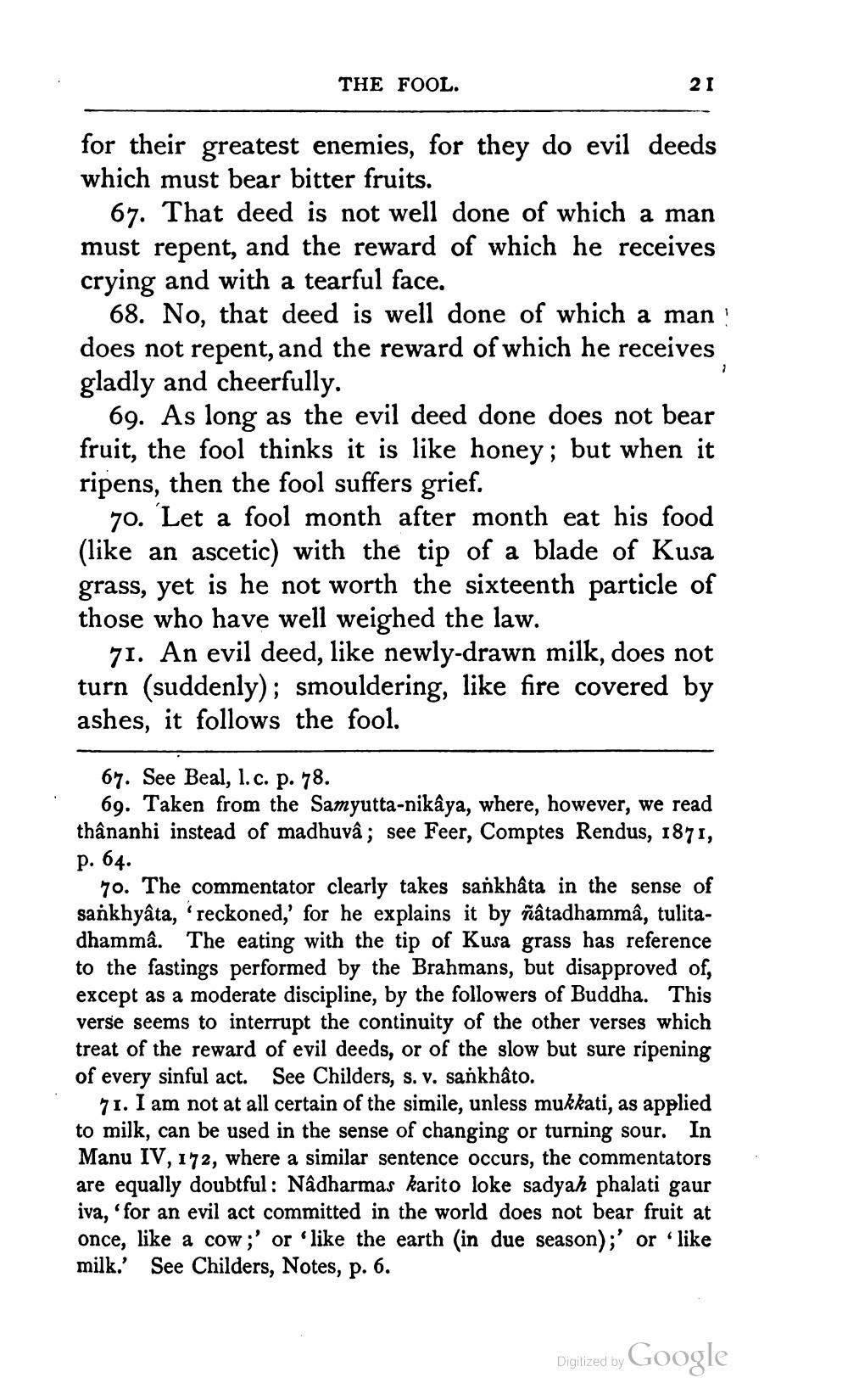________________
THE FOOL.
21
for their greatest enemies, for they do evil deeds which must bear bitter fruits.
67. That deed is not well done of which a man must repent, and the reward of which he receives crying and with a tearful face.
68. No, that deed is well done of which a man! does not repent, and the reward of which he receives gladly and cheerfully.
69. As long as the evil deed done does not bear fruit, the fool thinks it is like honey; but when it ripens, then the fool suffers grief.
70. Let a fool month after month eat his food (like an ascetic) with the tip of a blade of Kusa grass, yet is he not worth the sixteenth particle of those who have well weighed the law.
71. An evil deed, like newly-drawn milk, does not turn (suddenly); smouldering, like fire covered by ashes, it follows the fool.
67. See Beal, 1.c. p. 78.
69. Taken from the Samyutta-nikâya, where, however, we read thânanhi instead of madhuvâ; see Feer, Comptes Rendus, 1871, p. 64.
70. The commentator clearly takes sankhâta in the sense of sankhyâta, 'reckoned,' for he explains it by ñâtadhammâ, tulitadhamma. The eating with the tip of Kusa grass has reference to the fastings performed by the Brahmans, but disapproved of, except as a moderate discipline, by the followers of Buddha. This verse seems to interrupt the continuity of the other verses which treat of the reward of evil deeds, or of the slow but sure ripening of every sinful act. See Childers, s. v. sankhâto.
71. I am not at all certain of the simile, unless mukkati, as applied to milk, can be used in the sense of changing or turning sour. In Manu IV, 172, where a similar sentence occurs, the commentators are equally doubtful: Nâdharmas karito loke sadyah phalati gaur iva, 'for an evil act committed in the world does not bear fruit at once, like a cow;' or 'like the earth (in due season);' or 'like milk.' See Childers, Notes, p. 6.
Digitized by Google




